pronunciation
Heartwarming tale of a boy who grew up to have the last laugh, and get rich off the experience as well.
The Japanese soccer star shows how a tiny error in grammar and pronunciation can become an embarrassing moment for English learners.
“Wasei Eigo”, or “English words created in Japan”, can leave native English speakers baffled — but what about Korean speakers?
In terms of pronunciation Japanese is surprisingly easy to get to grips with, but some words can be real tongue-tanglers! Here are 10 of the worst!
With the 26 letters of the alphabet, we can make pretty much any sound present in the majority of languages. But Japanese just doesn’t contain certain sounds present in English, like “th” or “v”, and their “r” is somewhere right between our “r” and “l”, making them sound almost exactly the same to Japanese ears.
Since most Japanese people grow up only speaking Japanese, it means that when they start learning English at school, they either have to learn entirely new sounds (difficult) or else try to render English in Japanese sounds (which isn’t accurate). As a result, many Japanese English learners feel a lot of anxiety over the accuracy of their pronunciation. But should that really be holding them back?
Learning a foreign language is hard. Even if you master all the vocabulary and grammar, there’s still no guarantee that you’ll ever achieve a native-like accent. For Japanese learners of English, differentiating between the “l” and “r” sounds and pronouncing the “th” sound correctly can be tricky them no matter how many years they’ve been practicing.
But have you ever wondered what it’s like the other way around? What sounds do we English speakers make that sound strange when we speak Japanese? Well it turns out the sound that we mess up the most is one you might not have expected: “fu”.
In college, I had a classmate who, almost every day, would talk about the list of tuning mods he had planned for his car. Sometimes, he’d talk about his plans to order some sweet JDM parts from Honda’s in-house aftermarket division, Mugen, and you can’t imagine how much it drove me up the walls.
I didn’t begrudge the guy his daydream, but what I couldn’t take was the way he pronounced it “Myu-gen” instead of “Moo-gen,” adding in a phantom Y sound that has no place in the Japanese word for “without limits.”
But hey, a lot of people in the U.S. mispronounce it that way, and can you blame them? Pronouncing foreign words can be tricky, which is why there’s now a video which will teach you the correct way to pronounce the names of all of Japan’s major car makers. And, once you’ve mastered them all, we’ll even explain what they mean.
Depending on the second language you’re trying to master, pronunciation is arguably the hardest aspect to conquer. The Japanese and English languages are no exception. Japanese, with its highly syllabic alphabet, often has a hard time accommodating the often chaotic nature of natural English pronunciation.
While a native English speaker’s tongue might stumble when trying to spit out makudonarudo (McDonald) smoothly the first few times our language allows us to pick it up with a little practice. Japanese English speakers have far more adversity trying to understand all the diminished sounds of a native English speaker casually uttering the name of the famous hamburger chain.
With that, NTT has revealed technology it’s working on that may one day automatically correct a Japanese person’s English pronunciation by editing the speed and rhythm while keeping the original speaker’s voice intact.

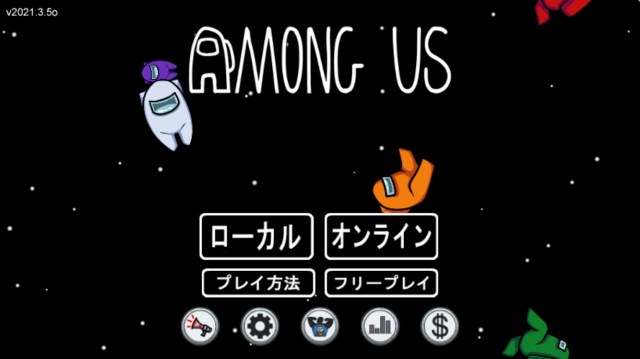




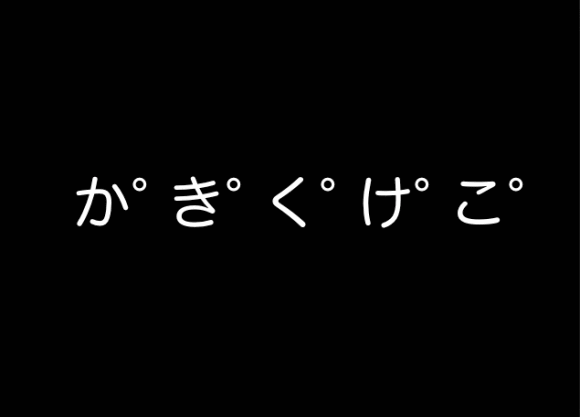


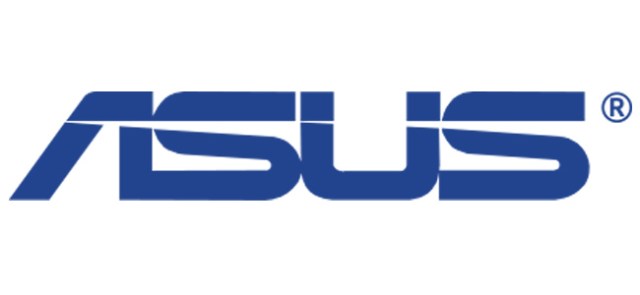

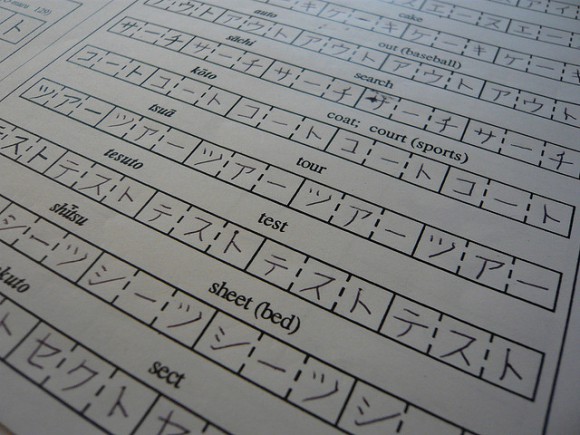
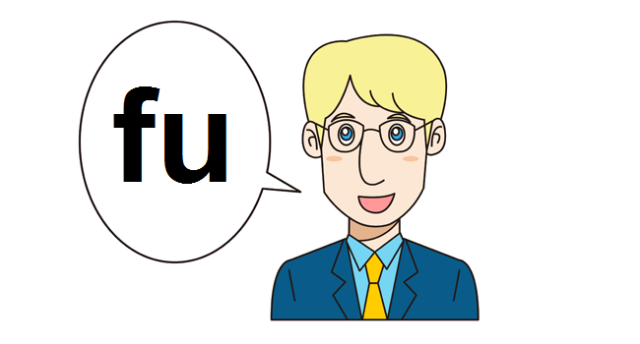

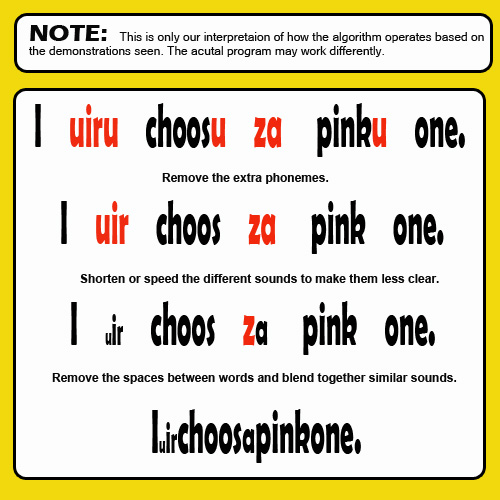
 Viral Japanese cheesecake from Osaka has a lesser known rival called Aunt Wanda
Viral Japanese cheesecake from Osaka has a lesser known rival called Aunt Wanda Japan’s craziest burger chain takes menchi katsu to new extreme levels
Japan’s craziest burger chain takes menchi katsu to new extreme levels Lawson adds doughnuts to its convenience store sweets range, but are they good enough to go viral?
Lawson adds doughnuts to its convenience store sweets range, but are they good enough to go viral? The best Hobonichi diaries, covers and stationery for 2026
The best Hobonichi diaries, covers and stationery for 2026 Japan Extreme Budget Travel! A trip from Tokyo to Izumo for just 30,000 yen [Part 2]
Japan Extreme Budget Travel! A trip from Tokyo to Izumo for just 30,000 yen [Part 2] Family Mart ups its convenience store food game with special burger from beef bowl chain Matsuya
Family Mart ups its convenience store food game with special burger from beef bowl chain Matsuya Potama serves up epic rice balls like no other, and there’s only one store in Tokyo
Potama serves up epic rice balls like no other, and there’s only one store in Tokyo Ramen for 99 yen?!? Best value-for-money noodles found at unlikely chain in Japan
Ramen for 99 yen?!? Best value-for-money noodles found at unlikely chain in Japan Pokémon Cafe’s new Mega Charizard curry plate is a work of art in more ways than one
Pokémon Cafe’s new Mega Charizard curry plate is a work of art in more ways than one Ryuk from Death Note performs Pen-Pineapple-Apple-Pen in official release video
Ryuk from Death Note performs Pen-Pineapple-Apple-Pen in official release video Starbucks Japan releases first-ever Hinamatsuri Girls’ Day Frappuccino
Starbucks Japan releases first-ever Hinamatsuri Girls’ Day Frappuccino Japanese restaurant chain serves Dragon Ball donuts and Senzu Beans this spring
Japanese restaurant chain serves Dragon Ball donuts and Senzu Beans this spring Highest Starbucks in Japan set to open this spring in the Tokyo sky
Highest Starbucks in Japan set to open this spring in the Tokyo sky Tokyo Skytree turns pink for the cherry blossom season
Tokyo Skytree turns pink for the cherry blossom season Japan Extreme Budget Travel! A trip from Tokyo to Izumo for just 30,000 yen [Part 1]
Japan Extreme Budget Travel! A trip from Tokyo to Izumo for just 30,000 yen [Part 1] Yakuzen ramen restaurant in Tokyo is very different to a yakuza ramen restaurant
Yakuzen ramen restaurant in Tokyo is very different to a yakuza ramen restaurant Japan has only one airport named after a samurai, so let’s check out Kochi Ryoma【Photos】
Japan has only one airport named after a samurai, so let’s check out Kochi Ryoma【Photos】 Japanese drugstore sells onigiri at pre-stupid era prices, but how do they compare to 7-Eleven?
Japanese drugstore sells onigiri at pre-stupid era prices, but how do they compare to 7-Eleven? Adorable Totoro acorn key holders come with a special guest hidden inside[Photos]
Adorable Totoro acorn key holders come with a special guest hidden inside[Photos] Japan’s newest Shinkansen has no seats…or passengers [Video]
Japan’s newest Shinkansen has no seats…or passengers [Video] Starbucks Japan releases new sakura goods and drinkware for cherry blossom season 2026
Starbucks Japan releases new sakura goods and drinkware for cherry blossom season 2026 Foreigners accounting for over 80 percent of off-course skiers needing rescue in Japan’s Hokkaido
Foreigners accounting for over 80 percent of off-course skiers needing rescue in Japan’s Hokkaido Super-salty pizza sends six kids to the hospital in Japan, linguistics blamed
Super-salty pizza sends six kids to the hospital in Japan, linguistics blamed Starbucks Japan unveils new sakura Frappuccino for cherry blossom season 2026
Starbucks Japan unveils new sakura Frappuccino for cherry blossom season 2026 Foreign tourists in Japan will get free Shinkansen tickets to promote regional tourism
Foreign tourists in Japan will get free Shinkansen tickets to promote regional tourism The 10 most annoying things foreign tourists do on Japanese trains, according to locals
The 10 most annoying things foreign tourists do on Japanese trains, according to locals Take a trip to Japan’s Dododo Land, the most irritating place on Earth
Take a trip to Japan’s Dododo Land, the most irritating place on Earth Naruto and Converse team up for new line of shinobi sneakers[Photos]
Naruto and Converse team up for new line of shinobi sneakers[Photos] Is China’s don’t-go-to-Japan warning affecting the lines at a popular Tokyo gyukatsu restaurant?
Is China’s don’t-go-to-Japan warning affecting the lines at a popular Tokyo gyukatsu restaurant? Survey asks foreign tourists what bothered them in Japan, more than half gave same answer
Survey asks foreign tourists what bothered them in Japan, more than half gave same answer Japan’s human washing machines will go on sale to general public, demos to be held in Tokyo
Japan’s human washing machines will go on sale to general public, demos to be held in Tokyo Starbucks Japan releases new drinkware and goods for Valentine’s Day
Starbucks Japan releases new drinkware and goods for Valentine’s Day We deeply regret going into this tunnel on our walk in the mountains of Japan
We deeply regret going into this tunnel on our walk in the mountains of Japan Studio Ghibli releases Kodama forest spirits from Princess Mononoke to light up your home
Studio Ghibli releases Kodama forest spirits from Princess Mononoke to light up your home Major Japanese hotel chain says reservations via overseas booking sites may not be valid
Major Japanese hotel chain says reservations via overseas booking sites may not be valid Put sesame oil in your coffee? Japanese maker says it’s the best way to start your day【Taste test】
Put sesame oil in your coffee? Japanese maker says it’s the best way to start your day【Taste test】 No more using real katana for tourism activities, Japan’s National Police Agency says
No more using real katana for tourism activities, Japan’s National Police Agency says Family Mart ups its convenience store food game with special burger from beef bowl chain Matsuya
Family Mart ups its convenience store food game with special burger from beef bowl chain Matsuya Potama serves up epic rice balls like no other, and there’s only one store in Tokyo
Potama serves up epic rice balls like no other, and there’s only one store in Tokyo Ramen for 99 yen?!? Best value-for-money noodles found at unlikely chain in Japan
Ramen for 99 yen?!? Best value-for-money noodles found at unlikely chain in Japan Pokémon Cafe’s new Mega Charizard curry plate is a work of art in more ways than one
Pokémon Cafe’s new Mega Charizard curry plate is a work of art in more ways than one Ryuk from Death Note performs Pen-Pineapple-Apple-Pen in official release video
Ryuk from Death Note performs Pen-Pineapple-Apple-Pen in official release video Dog-killing waves create spectacular views on this remote Japanese island
Dog-killing waves create spectacular views on this remote Japanese island Star Wars stormtroopers don Gundam armor in fan’s awesome crossover models 【Videos/Photos】
Star Wars stormtroopers don Gundam armor in fan’s awesome crossover models 【Videos/Photos】 Can we be just like Shohei Ohtani on a budget with a Hello Kitty cap?
Can we be just like Shohei Ohtani on a budget with a Hello Kitty cap? Starbucks Japan releases first-ever Hinamatsuri Girls’ Day Frappuccino
Starbucks Japan releases first-ever Hinamatsuri Girls’ Day Frappuccino Enjoy a Pokémon tea ceremony with new matcha goods featuring Poltchageist and Sinistcha
Enjoy a Pokémon tea ceremony with new matcha goods featuring Poltchageist and Sinistcha The top 10 Studio Ghibli anime homes that fans would most like to live in
The top 10 Studio Ghibli anime homes that fans would most like to live in We buy chocolate fish in a can from a store in Akihabara
We buy chocolate fish in a can from a store in Akihabara One week of Pop-Tart breakfasts – Can a Japanese man fall in love with the U.S. breakfast icon?
One week of Pop-Tart breakfasts – Can a Japanese man fall in love with the U.S. breakfast icon?